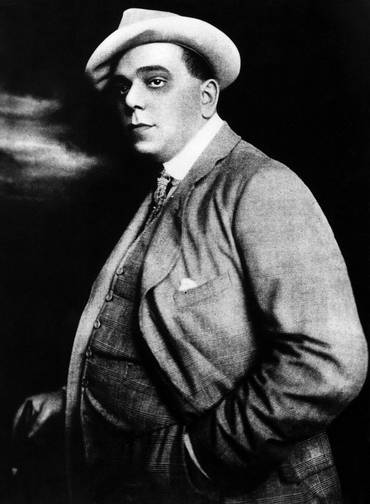Queer Places:
São João Batista Cemetery, Rua Real Grandeza - Botafogo, Rio de Janeiro - RJ, 22281-033, Brazil
 João do Rio was the pseudonym of the Brazilian journalist, short-story
writer and playwright João Paulo Emílio Cristóvão dos Santos Coelho Barreto, a
Brazilian author and journalist of African descent (August 5, 1881, Rio de
Janeiro – June 23, 1921, Rio de Janeiro). He was elected on May 7, 1910 for
the chair # 26 of Brazilian Academy of Letters. The Brazilian writer João do
Rio, who translated Salomé into Portuguese, was a great admirer of Wilde.
Another sophisticated man-about-town on the European fin de siècle model, he
wandered the streets of his native Rio de Janeiro (hence the pseudonym; his
real name was Paulo Barreto), every inch the dandified flâneur; but his
prolific articles and stories about the urban life he observed around him were
by no means confined to the class from which he had emerged, the bourgeoisie.
Although he was circumspect in behaviour, if not in his ‘effeminate’ style and
manner, João do Rio was often publicly attacked for being homosexual.
João do Rio was the pseudonym of the Brazilian journalist, short-story
writer and playwright João Paulo Emílio Cristóvão dos Santos Coelho Barreto, a
Brazilian author and journalist of African descent (August 5, 1881, Rio de
Janeiro – June 23, 1921, Rio de Janeiro). He was elected on May 7, 1910 for
the chair # 26 of Brazilian Academy of Letters. The Brazilian writer João do
Rio, who translated Salomé into Portuguese, was a great admirer of Wilde.
Another sophisticated man-about-town on the European fin de siècle model, he
wandered the streets of his native Rio de Janeiro (hence the pseudonym; his
real name was Paulo Barreto), every inch the dandified flâneur; but his
prolific articles and stories about the urban life he observed around him were
by no means confined to the class from which he had emerged, the bourgeoisie.
Although he was circumspect in behaviour, if not in his ‘effeminate’ style and
manner, João do Rio was often publicly attacked for being homosexual.
Since early, the sexual preferences of Barreto brought forth suspicion
(and, later, gibe) among his contemporaries. Bachelor, without girlfriend or
known mistress, many of his texts transpire a sufficiently explicit homoerotic
inclination. The suspicion was eventually confirmed when he presented himself
as promoter in Brazil of the "cursed"
Oscar Wilde, whose works
he translated into Portuguese. Historians have labeled him as a "notable black
homosexual writer".[1]
An odd person, dressed like a "fashion plate" (Rodrigues, 1996, p. 239),
Barreto never dared to defy the stereotypes of that era. However, for aspiring
to defend new ideas in social and political fields, his "voluminous,
thick-lipped and dark figure with a very smooth coat" (as registered by
Gilberto Amado) became a perfect target for all sorts of reactionaries,
homophobics and racists like Humberto de Campos.
His presumed "flirt" with
Isadora Duncan in
1916 (when she was performing in the Theatro Municipal of Rio de Janeiro),
expresses this sexual ambiguity. Duncan and Barreto had met previously in
Portugal, but it was only during her performance in Rio that they became
close. The exact level of this intimacy is a mystery. Rodrigues (1996) talks
about a factoid or hype, an expedient to attract the attention of the press,
whilst other sources cite a supposed dialogue where the dancer would have
questioned Barreto about his pederasty, and he would have answered in French:
Je suis très corrompu (I am very corrupted).
My published books:


BACK TO HOME PAGE

- https://en.wikipedia.org/wiki/Jo%C3%A3o_do_Rio
- Woods, Gregory. Homintern . Yale University Press. Edizione del
Kindle.
 João do Rio was the pseudonym of the Brazilian journalist, short-story
writer and playwright João Paulo Emílio Cristóvão dos Santos Coelho Barreto, a
Brazilian author and journalist of African descent (August 5, 1881, Rio de
Janeiro – June 23, 1921, Rio de Janeiro). He was elected on May 7, 1910 for
the chair # 26 of Brazilian Academy of Letters. The Brazilian writer João do
Rio, who translated Salomé into Portuguese, was a great admirer of Wilde.
Another sophisticated man-about-town on the European fin de siècle model, he
wandered the streets of his native Rio de Janeiro (hence the pseudonym; his
real name was Paulo Barreto), every inch the dandified flâneur; but his
prolific articles and stories about the urban life he observed around him were
by no means confined to the class from which he had emerged, the bourgeoisie.
Although he was circumspect in behaviour, if not in his ‘effeminate’ style and
manner, João do Rio was often publicly attacked for being homosexual.
João do Rio was the pseudonym of the Brazilian journalist, short-story
writer and playwright João Paulo Emílio Cristóvão dos Santos Coelho Barreto, a
Brazilian author and journalist of African descent (August 5, 1881, Rio de
Janeiro – June 23, 1921, Rio de Janeiro). He was elected on May 7, 1910 for
the chair # 26 of Brazilian Academy of Letters. The Brazilian writer João do
Rio, who translated Salomé into Portuguese, was a great admirer of Wilde.
Another sophisticated man-about-town on the European fin de siècle model, he
wandered the streets of his native Rio de Janeiro (hence the pseudonym; his
real name was Paulo Barreto), every inch the dandified flâneur; but his
prolific articles and stories about the urban life he observed around him were
by no means confined to the class from which he had emerged, the bourgeoisie.
Although he was circumspect in behaviour, if not in his ‘effeminate’ style and
manner, João do Rio was often publicly attacked for being homosexual.
